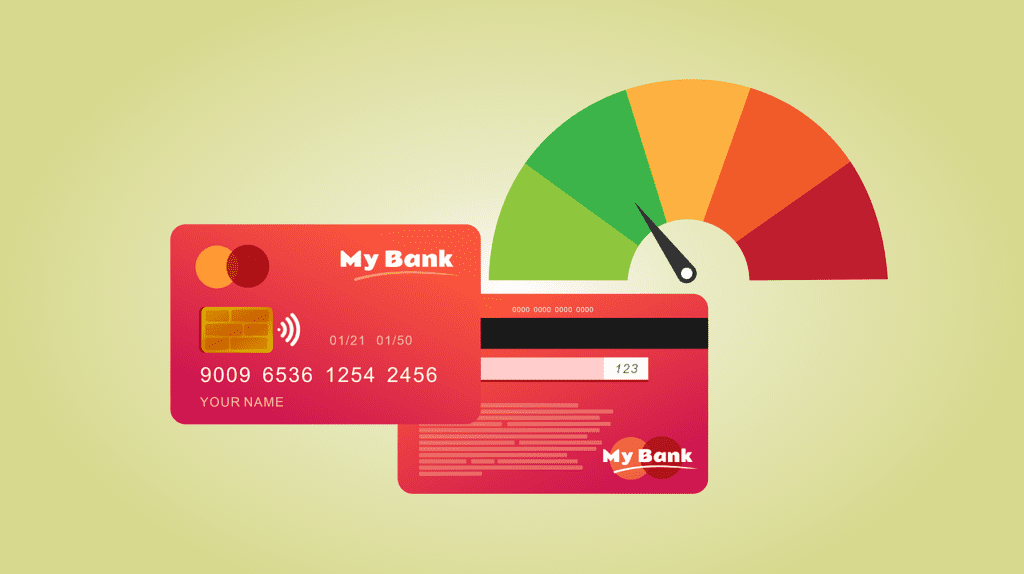Why Does My Credit Score Drop for No Reason? Answered!

Your credit score, that three-digit number representing your financial health, can sometimes leave you puzzled, especially when it drops unexpectedly. You’ve been making payments on time and managing your credit responsibly, so why is your credit score taking a hit seemingly for no reason? In this article, we’ll delve into the world of credit scores, exploring the potential factors that might cause your credit score to drop without a clear explanation. Let’s demystify the situation and shed light on how you can proactively manage your credit health.
Understanding the Complexities of Credit Score
Your credit score is a complex calculation based on various factors, and sometimes, even seemingly small changes can have a significant impact. Here are some potential reasons behind an unexplained credit score drop:
1. Credit Utilization:
One of the key factors in your credit score is your credit utilization ratio, which is the percentage of your available credit that you’re using. If your credit card balances increase, even if you’re paying on time, it can negatively impact your credit score. Maintaining a low credit utilization ratio is essential for a healthy score.
2. Undetected Late Payments:
Have you missed any payments, even by a day? Late payments, even if accidental, can cause your credit score to drop. Payment history is a vital component of your credit score, and any deviations can have repercussions.
3. Credit Inquiries:
When you apply for new credit, a hard inquiry is generated on your credit report. Multiple inquiries within a short period can temporarily lower your credit score, as it suggests you might be seeking more credit than you can handle.
4. Changes in Credit Mix:
Your credit mix, which includes credit cards, loans, and mortgages, also affects your credit score. If you shift from one type of credit to another, it might impact your score.
5. Closed Accounts:
Closing an old credit account can affect your credit history’s average age, potentially leading to a drop in your score.
6. Negative Information:
Any negative information, such as accounts in collections or late payments, can significantly impact your credit score. Even if you’re unaware of it, these records can have consequences.
7. Errors on Your Credit Report:
Mistakes happen, and errors on your credit report can lead to score drops. Regularly check your credit reports for inaccuracies and dispute any discrepancies.
FAQs About Unexpected Credit Score Drops

Credit scores hold a significant influence over our financial lives, impacting everything from loan approvals to interest rates. Yet, there are moments when these seemingly mysterious numbers take an unexpected dip, leaving us puzzled and concerned. Fear not, for in this section, we address the common questions that arise when you find your credit score dropping without apparent cause. Delve into the world of credit scores, unravel the reasons behind unanticipated declines, and equip yourself with the knowledge to navigate these perplexing situations.
Q1: Why did my credit score drop when I’ve been making payments on time?
A1: While on-time payments are crucial, your credit score considers multiple factors. An unexpected drop might be due to increased credit card balances, recent credit inquiries, or negative changes in your credit history.
Q2: Can a single late payment cause my credit score to drop?
A2: Yes, unfortunately, even a single late payment can have a noticeable impact on your credit score. Payment history plays a significant role in your score calculation.
Q3: I haven’t applied for new credit, so why did my score drop after a credit inquiry?
A3: Sometimes, credit inquiries occur without your direct application, such as when you pre-qualify for an offer. Multiple inquiries in a short period can still affect your score.
Q4: Does closing an old credit card account affect my credit score?
A4: Yes, closing an old account can lower your credit score. It affects your credit utilization ratio and the average age of your credit history.
Q5: Can errors on my credit report cause my score to drop unexpectedly?
A5: Absolutely. Errors on your credit report, like incorrect account information or unauthorized accounts, can lead to unjustified score drops. Regularly review your reports for accuracy.
Q6: How can I improve my credit score after an unexpected drop?
A6: Start by addressing the specific issue that caused the drop. Pay down high credit card balances, dispute any inaccuracies, and continue practicing responsible credit habits.
Q7: Is it normal for my credit score to fluctuate even if I’m not doing anything differently?
A7: Yes, minor fluctuations are common due to various factors. However, significant and repeated drops without a clear reason could indicate underlying issues that need attention.
Q8: Can having too many credit cards lead to score drops?
A8: Not necessarily. It’s more about how you manage those cards. If you’re consistently carrying high balances or applying for new cards, it might impact your score.
Q9: Will an increase in my income affect my credit score?
A9: Your income isn’t directly reported to credit bureaus, so it doesn’t impact your credit score. However, higher income might enable you to manage credit better and pay down debts.
Q10: How often should I check my credit reports for errors?
A10: You should review your credit reports from all three major bureaus (Equifax, Experian, TransUnion) at least once a year. Regular monitoring helps catch errors early.
Q11: Can negative information drop off my credit report automatically after a certain time?
A11: Most negative information, like late payments and accounts in collections, remains on your report for seven years. Bankruptcies stay for ten years. They’ll naturally fall off over time.
Q12: Should I be worried about score drops due to credit utilization fluctuations?
A12: While occasional fluctuations are normal, consistently high credit card balances can harm your score. Aim to keep your credit utilization ratio below 30% to maintain a healthy score.
Q13: Will paying off a collection account immediately improve my score?
A13: Paying off a collection account is a positive step, but it might not lead to an immediate score improvement. The impact lessens over time, and the account’s status may be updated.
Q14: Can a sudden decrease in available credit affect my score?
A14: Yes, if a credit card issuer reduces your credit limit, it can affect your credit utilization ratio. Be mindful of how such changes might impact your score.
Q15: Why is my score lower than my partner’s, even though we have similar financial habits?
A15: Credit scores can differ due to various factors, including the types of credit you have and the length of your credit history. Personal circumstances also play a role.
Q16: What steps can I take to prevent future unexpected credit score drops?
A16: Regularly monitor your credit reports, pay bills on time, maintain low credit card balances, and avoid applying for multiple new credit accounts in a short span.
Q17: How long does it take for my credit score to rebound after an unexpected drop?
A17: The time it takes for your score to recover depends on the specific factors causing the drop. Generally, positive changes take a few months to reflect in your score.
Remember, your credit score is a dynamic reflection of your financial behavior and keeping it in good shape requires vigilance and informed decision-making. Stay engaged with your credit profile, and you’ll be better equipped to navigate any unexpected score drops with confidence.
Conclusion: Why Does My Credit Score Drop for No Reason
While your credit score might seem mysterious at times, it’s important to remember that multiple factors influence its fluctuations. Keep an eye on your credit reports, practice responsible credit management, and be proactive in addressing any issues you encounter. By understanding the intricacies of credit scoring, you can take control of your credit health and work towards maintaining a strong credit score over time.





